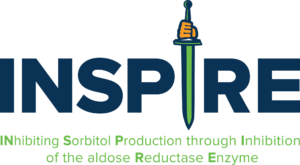Applied Therapeutics is committed to developing transformative treatments for high unmet medical need indications - fatal or debilitating diseases with no drugs approved.


Interested in participating in one of our clinical trials?
Galactosemia:
Contact us at Galactosemia@appliedtherapeutics.com or call 212-220-9226
Diabetic Cardiomyopathy:
Contact us at ARISEHF@appliedtherapeutics.com or call 646-809-8110
Sorbitol Dehydrogenase (SORD) Deficiency:
Contact us at: sord@appliedtherapeutics.com or call 212-220-9226

ACTION-Galactosemia
Applied Therapeutics has completed a Phase 1/2 study of govorestat in adults (age 18 and older) with Galactosemia. ACTION-Galactosemia evaluated the safety and pharmacokinetics (PK) of govorestat, a central nervous system (CNS) penetrant Aldose Reductase Inhibitor, in healthy volunteers, and explored safety and reduction in galactitol levels. Galactitol is a toxic metabolite of galactose, responsible for long term complications of Galactosemia.
ACTION-Galactosemia Kids
Applied Therapeutics has completed the registrational ACTION-Galactosemia Kids study of govorestat in children (aged 2-17) with Galactosemia. Results from the study demonstrated clinical benefit of govorestat on activities of daily living, behavioral symptoms, cognition and tremor.

INSPIRE
Applied Therapeutics is conducting a registrational clinical trial of govorestat in patients (age 16 and older) with SORD Deficiency. INSPIRE (INhibiting Sorbitol Production through Inhibition of the aldose Reductase Enzyme) is evaluating biomarker efficacy, clinical outcomes and safety in people living with SORD Deficiency treated with govorestat vs. placebo.

ARISE-HF
Applied Therapeutics has completed a Phase 3 clinical trial of AT-001 in adults with Type 2 Diabetes for Diabetic Cardiomyopathy (DbCM). In the ARISE-HF trial, AT-001 demonstrated a strong trend in stabilizing cardiac functional capacity, while the placebo group declined over 15 months. AT-001 treatment resulted in a statistically significant difference in cardiac functional capacity in a prespecified subgroup of patients not receiving concomitant treatment with an SGLT2 or GLP-1 (p=0.040) and prevented clinically significant worsening (odds ratio 0.56; p=0.035.) AT-001 also demonstrated a favorable safety and tolerability profile.

